Q: Where do I send my HOA payment.
A: Please contact our Management Company for the payment address.
Q: What are the top 5 CC&R violations.
1. Not cleaning up after pets.
2. Barbecue in common areas (excluding picnic area).
3. Front porches used as storage areas.
4. Garage doors left open and unatttended.
5. Planting of vegetables.
Q: What are the vendors Autumn Pointe is currently doing business with.
1. JFLandscape – Dates of Service: Monday and Friday.
2. BTS Care Solutions Inc (Cleaning Service) – Dates of Service: Tuesday, Thursday, and Saturday.
3. Universal Waste Systems, Inc. – Dates of Service: Tuesday and Friday.
4. FTS Private Security & Patrol Services
5. IPM Tech Pest Management. – Note: Autumn Pointe can fumigate 18 units free of charge to homeowners each month. Up to 9 units on the 2nd Thursday of the month, and up to 9 units on the 4th Thursday of the month. Please contact our Management Company to schedule an appointment.
6. H.I. Fire Extinguisher Co. Inc.
7. Spring Pool Service – Dates of Service: Winter (once a week), Summer (twice a week).
8. City Wide Towing – 1501 Fishburn Ave, Los Angeles, CA 90063 – (323) 268-5858
Q: How can I obtain a key for the common area or a remote for the gates?
A: As of June 2022, the cost for a remote is $45, and the cost for a common area key is $25. If you are interested in purchasing either a key and/or a remote the unit owner may contact our Management Company.
Q: How can I obtain a preferential parking permit?
A: Preferential parking permit may be obtained thru LADOT website: https://ladotparking.org
Q: How can I reserve the picnic area for a party?
A: There are no reservations for the picnic area, the use of the picnic area will be on a first come, first served basis. It is the responsibility of you and/or your guests to clean after using the picnic area.
Q: How do I give AT&T access to the utility box?
A: Please direct AT&T personnel needing access to the utility box to the mailboxes. There is a red box that has the keys to the utility boxes. AT&T personnel has the keys to the red box.
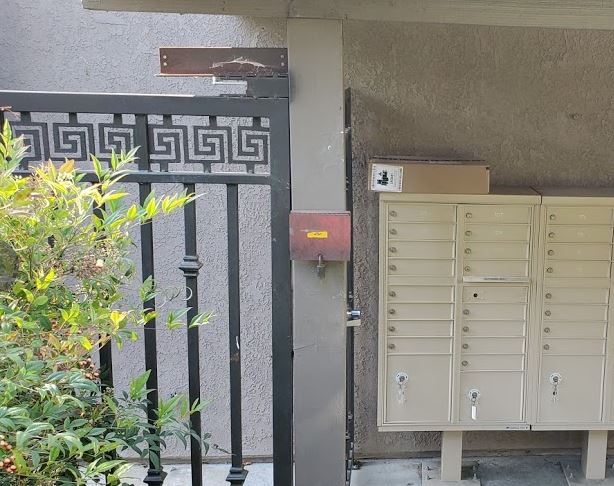
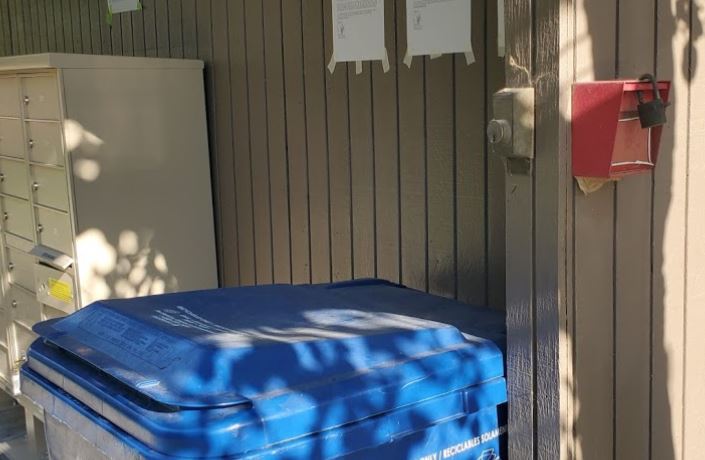
Q: How can I dispose of bulky items?
A: LA Sanitation will pick up your large/bulky household items such as mattresses, couches, doors, carpet, toilets, electrical waste, and other furniture and items from residents residing in multi-family residential buildings. To remove these bulky items from your curbside, please call 1-800-773-2489 to schedule an appointment. Please provide an itemized list of the items to be collected when you call to schedule the appointment.
Q: Where can I throw away recyclable materials?
A: There is a blue recycle container located at each mailbox, in order to prevent overflow we ask you only discard junk mail on these recycle bins.
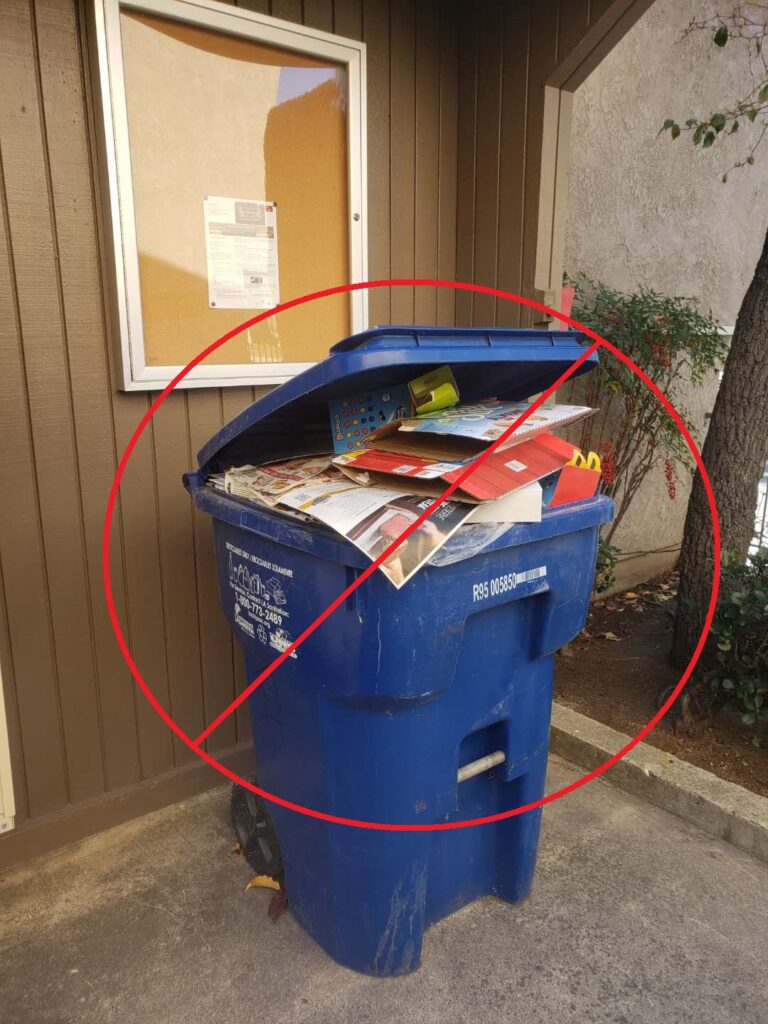
Non junk mail recyclable items may be taken to the recycle center which is located next to Trash bin #7.
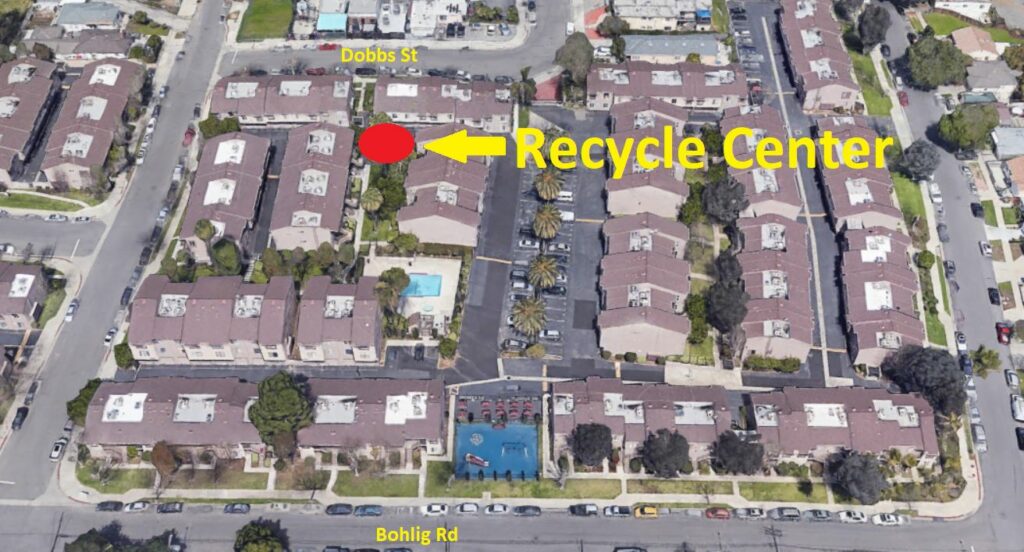
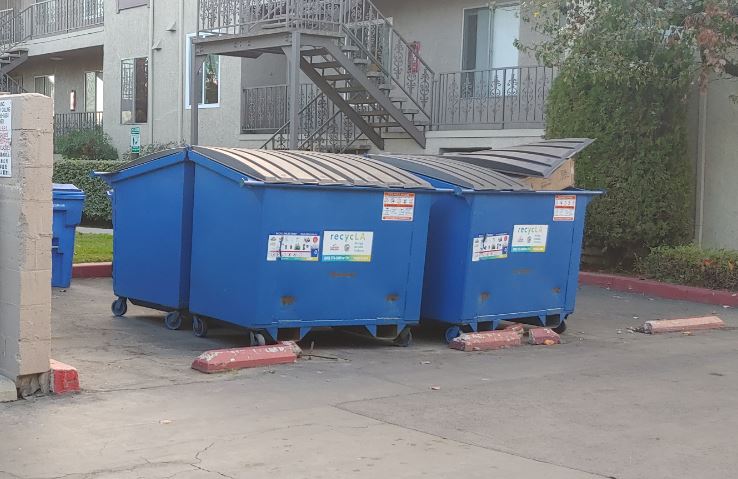
Q: What is a homeowners association?
A: A homeowners association (HOA), also known as a Common Interest Development (CID) and a community association, is a non-profit entity under which community governance structure is established and operated. Homeowners associations are established with the intent of protecting the community assets and instituting prudent physical and financial maintenance practices. Decisions concerning homeowner association operations are made by a volunteer Board of Directors elected by the community residents during the annual meeting of the membership.
Q: What is the role of the Board of Directors?
A: The Board of Directors are volunteer homeowners who have been elected by the membership at an annual membership meeting. By virtue of their selection, they are given the authority to make decisions on behalf of the membership affecting all aspects of community association assets.
The Board of Directors’ decisions may include creation of restrictions governing the use of common area facilities, collection of reserve funds for future repair and maintenance of assets, collection of assessments, enforcement of use restrictions, along with many other important and critical decisions; all for the benefit and care of the community and its homeowners.
Q: What is the role of the management company?
A: Since the Board of Directors is comprised of volunteers, it is a good idea to hire a professional managing agent specializing in community association operations. Professional management companies possess knowledge of changing legislation affecting common interest developments and they understand fiscal as well as physical management requirements of these entities. The scope of services provided by a management company will vary based on the needs of each community association. Contractual management duties include customer service, preparation of financial statements, collection of assessments, coordination and oversight of vendors to address maintenance issues.
Q: What is my role as a homeowner?
A: All homeowners should assume responsibility to protect property values and secure a lifestyle that all residents can enjoy. As a member of your community association, your legal responsibilities to the community association include: complying with the governing documents, rules and regulations, architectural guidelines, policies and procedures, and paying the monthly assessment necessary to operate the community association.
Q: What does the monthly assessment pay for?
A: The monthly assessment covers the operating and reserve expenses that the community association is legally obligated to take care of, per the Covenants, Conditions and Restrictions (CC&R’s). Items such as insurance, taxes, water, electricity, landscaping services, janitorial, and even pest control are just a few of the items that may be covered by assessments. Assessments also cover the funding of reserves, which are funds accumulated to pay for future repair or replacement of major components for which the community association is responsible, such as roofing and painting in a condominium project, street repairs, and pool/spa and clubhouse refurbishment in a planned unit development. Assessments also cover the costs associated with operating a non-profit corporation, including preparation of an annual budget, audit, reserve study, and distribution of election materials, etc.
Q: What are special assessments?
A: Special assessments are a method in which the community association can continue to operate when faced with an unexpected expense from an event or common area component failure, which was not previously anticipated within the community association’s operating/reserve budget.
Q: What if I don’t pay my HOA assessments?
A: HOA assessments are a legal requirement of each and every homeowner purchasing a home within a community association. Board members have a fiduciary duty to collect delinquent assessments for the benefit of the entire community association. A Collections policy has been established by your Board of Directors for non-payment of assessments and could result in a lien being filed against the property, judgment, and collection if not kept current.
Q: What are governing documents (i.e. CC&R, Rules & Regulations)?
A: Several documents govern community association operations. These documents include Covenants, Conditions, and Restrictions (CC&R), Bylaws, and Rules and Regulations.
Covenants, Conditions, and Restrictions (CC&R): CC&R’s are County recorded documents and contain information regarding membership, assessments, architectural control, use restrictions, duties and powers of the community association, repair and maintenance responsibilities, insurance, easements, annexations, just to name a few.
Bylaws: Bylaws outline organizational details such as frequency of board meetings, number of board members, etc.
Rules and Regulations: Rules and Regulations are an unrecorded set of guidelines summarizing the use restrictions in the CC&R’s. The Board of Directors establishes the content of this document and may change them as necessary. Rules and Regulations may be modified through resolutions.
Q: Why are there board meetings? Can I attend a board meeting?
A: Board meetings are to provide a forum permitting board members to make community association business decisions. Board meetings embody an executive session and a general session.
The executive session is closed to homeowners. It provides a confidential forum in which to discuss matters of sensitive nature which may include contract issues, personal issues or legal matters.
The general session is open to homeowners. Homeowners may address the Board in the homeowner forum portion of the meeting. The remainder of the meeting requires no homeowner involvement. However homeowners are encouraged to remain and observe the meeting activities.
Autumn Pointe homeowners should contact our Management Company with concerns, questions or any matter you wish to bring to the Board.
Q: I would like to be more involved in my community association. How do I get involved?
A: All homeowners are encouraged to participate as Homeowners Associations rely on volunteer support. There are many opportunities within community associations to become involved. Community association committees often include a social committee, landscape committee, rules and regulations committee, architectural review committee and many others. Involvement ensures that each individual’s voice is heard and each homeowner’s ideas are considered and applied to the extent permitted. Homeowners find volunteerism affords them the opportunity to make a difference and is a great resource in forming relationships with neighbors. For further information, please contact our Management Company with concerns, questions or any matter you wish to bring to the Board.